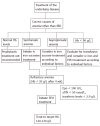Stimulating erythropoiesis in inflammatory bowel disease associated anemia
- PMID: 17828809
- PMCID: PMC4611757
- DOI: 10.3748/wjg.v13.i36.4798
Stimulating erythropoiesis in inflammatory bowel disease associated anemia
Abstract
Anemia is a frequent complication in patients with inflammatory bowel disease (IBD), and is associated with decreased quality of life and increased rate of hospitalization. The primary therapeutic targets of IBD-associated anemia are iron deficiency and anemia of chronic disease. An important prognostic parameter of the success or failure of therapy is the outcome of the underlying disease. Iron deficiency should be appropriately managed with iron supplementation. However, the use of oral iron therapy is limited by several problems, the most important being gastrointestinal side effects leading occasionally to disease relapse and poor iron absorption. Intravenous iron preparations are more reliable, with iron sucrose demonstrating the best efficacy and tolerability. Treatment with erythropoietin or darbepoetin has been proven to be effective in patients with anemia, who fail to respond to intravenous iron. Patients with ongoing inflammation have anemia of chronic disease and may require combination therapy comprising of intravenous iron sucrose and erythropoietin. After initiating treatment, careful monitoring of hemoglobin levels and iron parameters is needed in order to avoid recurrence of anemia. In conclusion, anemia in the setting of IBD should be aggressively diagnosed, investigated, and treated. Future studies should define the optimal dose and schedule of intravenous iron supplementation and appropriate erythropoietin therapy in these patients.
Figures
References
-
- Ebinger M, Leidl R, Thomas S, Von Tirpitz C, Reinshagen M, Adler G, Konig HH. Cost of outpatient care in patients with inflammatory bowel disease in a German University Hospital. J Gastroenterol Hepatol. 2004;19:192–199. - PubMed
-
- Werlin SL, Grand RJ. Severe colitis in children and adolescents: diagnosis. Course, and treatment. Gastroenterology. 1977;73:828–832. - PubMed
-
- Wilson A, Reyes E, Ofman J. Prevalence and outcomes of anemia in inflammatory bowel disease: a systematic review of the literature. Am J Med. 2004;116 Suppl 7A:44S–49S. - PubMed
-
- Schreiber S, Howaldt S, Schnoor M, Nikolaus S, Bauditz J, Gasché C, Lochs H, Raedler A. Recombinant erythropoietin for the treatment of anemia in inflammatory bowel disease. N Engl J Med. 1996;334:619–623. - PubMed
Publication types
MeSH terms
Substances
LinkOut - more resources
Full Text Sources
Medical


